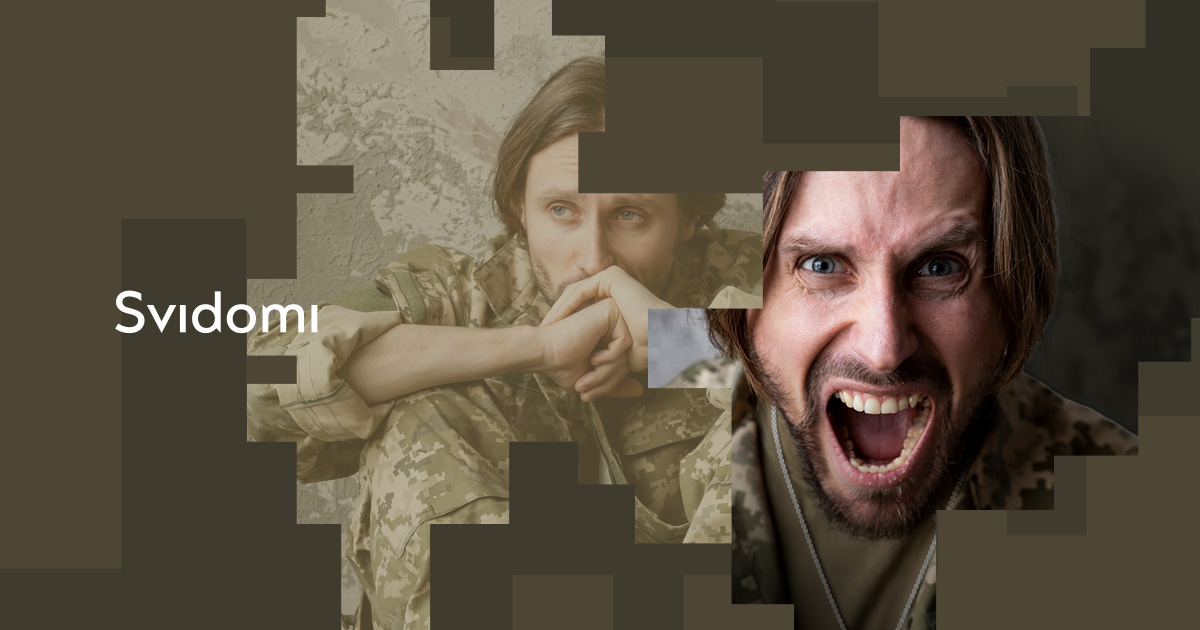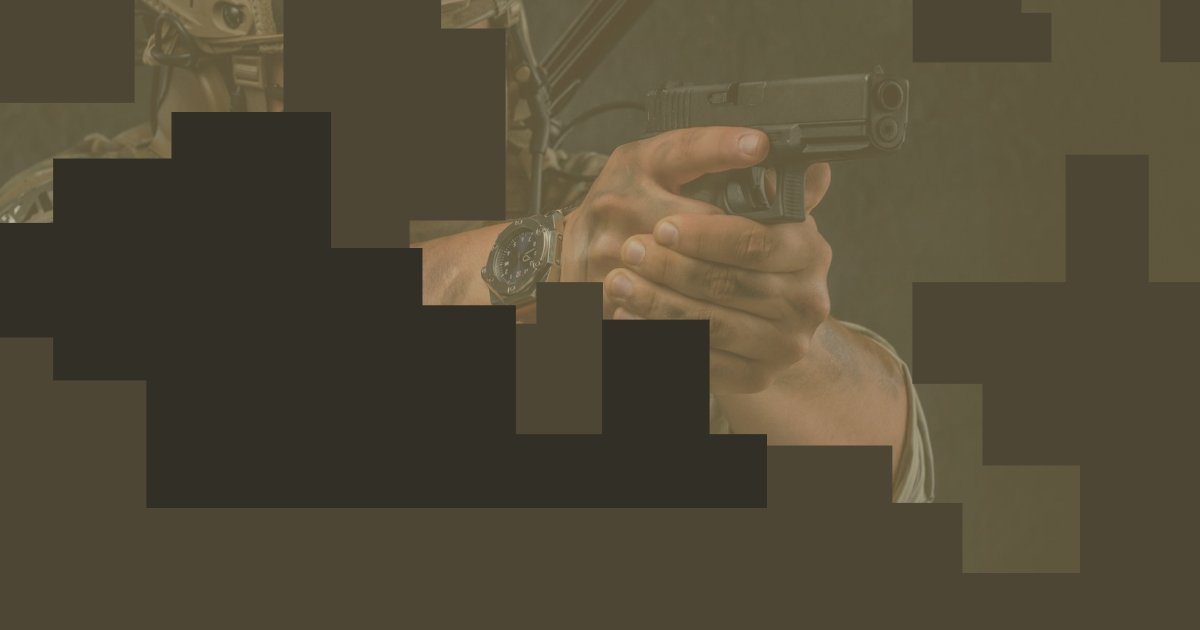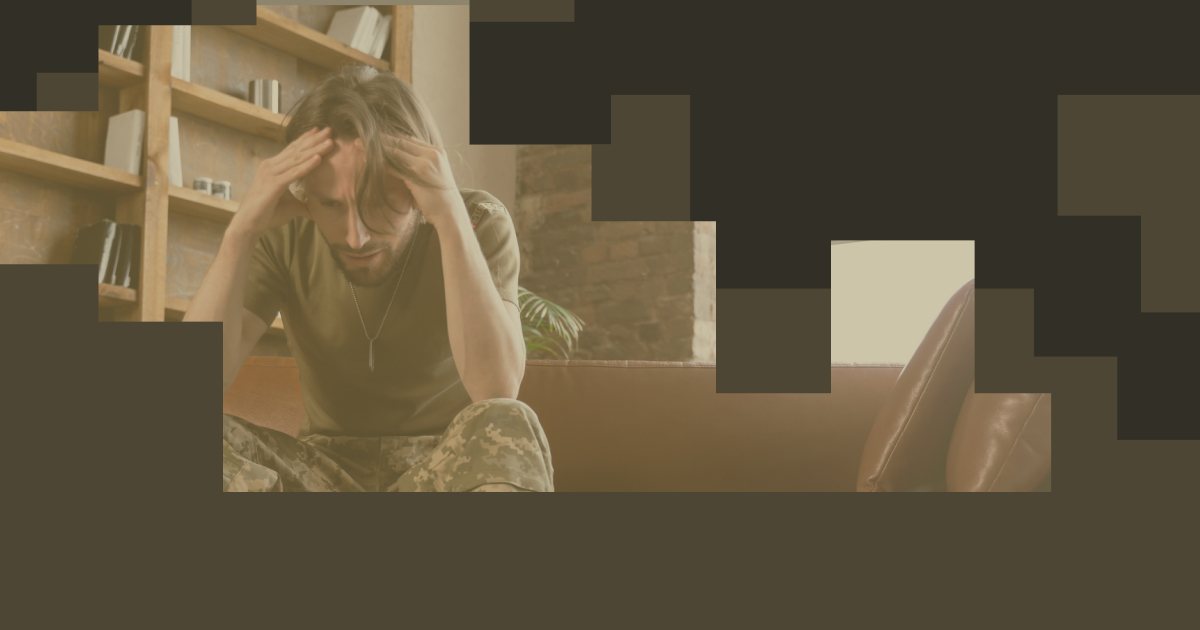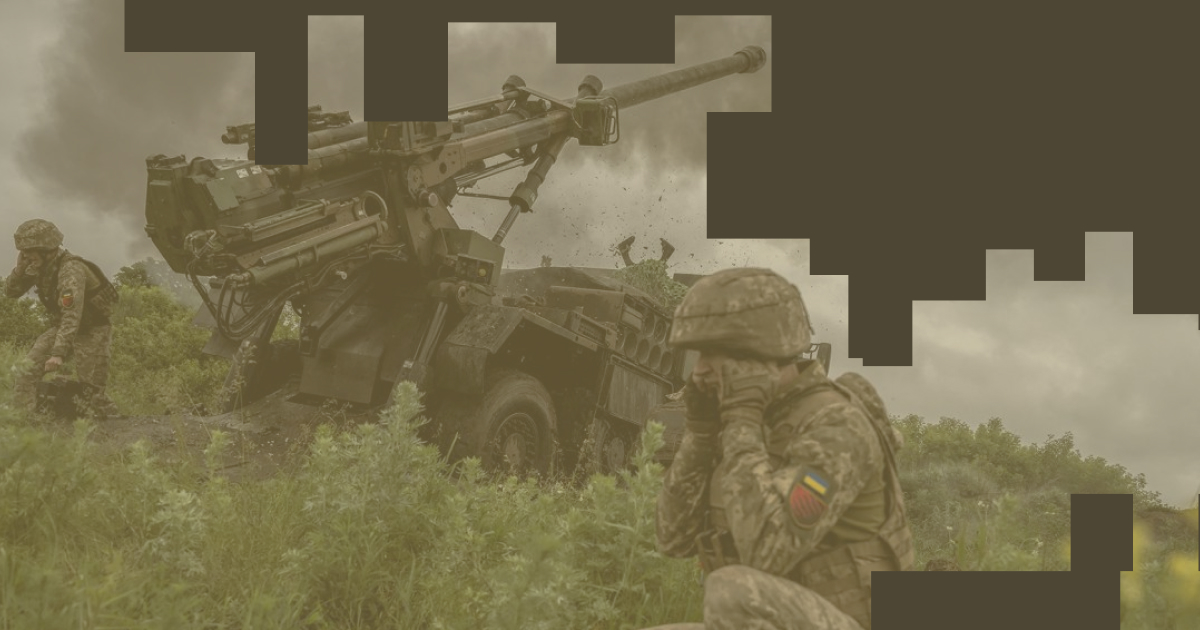Do soldiers really become violent after the war?

After Russia's full-scale invasion, many Ukrainians joined the army. Some did it voluntarily, and others were mobilised. However, all the things that military personnel are forced to live through at war have a negative impact not only on their physical but also mental health.
The units of the Armed Forces of Ukraine have a position of a psychologist who is supposed to provide assistance to those soldiers who need it. There are also initiatives in Ukraine where military personnel and veterans can receive psychological assistance.
However, there is no comprehensive state programme in Ukraine to provide such support to soldiers. Therefore, some Ukrainians believe that after the war, without proper and comprehensive assistance, some veterans will not be able to cope with the psychological effects of the war and will become "violent."
Svidomi explains whether this is true.
They didn't get into the lift with me
The fact that some Ukrainians are afraid of the military was experienced by Marharyta Rivchachenko, a spokeswoman for the Armed Forces of Ukraine with the call sign Athena, when people refused to take the same lift with her.
I was waiting for a lift in a private clinic, dressed in a military uniform. When the lift arrived, two women did not get on with me, saying they would wait for another one,
she says.
The servicewoman says she notices that people are afraid to stand next to a woman in uniform.
"As a female soldier and the girlfriend of a serving soldier, with whom we often go out together, and he may be wearing a uniform, it is quite unpleasant when we are treated as a threat," she says.
Marharyta Rivchachenko finds it unfortunate that there is a fear of the military in society today. "A soldier will not, for example, use a weapon against a civilian who does not pose a threat. Either this soldier is agitated or intoxicated. But it is offensive to consider all [the military] 'murderers' or 'unstable'," she explains.
He was aggressive
At the same time, ordinary Ukrainians do encounter aggressive behaviour from some military personnel. A resident of Truskavets, Tetiana Maniak, told Svidomi a story about when she was walking down the street with her boyfriend and encountered two soldiers who were "talking loudly." Tetiana does not know the reasons why the soldiers were talking that way.
"We decided to leave the sidewalk and walk through the parking lot. This irritated one of the men, so he started instigating a fight with my boyfriend, using foul language. If it wasn't for another soldier who held him and calmed him down, I don't know how we would have got out of this situation," says Tetiana.
Tetiana Maniak and her boyfriend did not know how to react to such behaviour. They were silent and tried to move away. According to the girl, there is currently a lack of materials in Ukraine that would explain how to behave in such a situation.

"I have come across posts on how to communicate with the military when you are, for example, travelling together on a train (not to ask too many questions, not to bother). But no one writes about what to do in case of aggression," says the woman.
Tensions arise in society between the military and civilians
A member of a volunteer unit with the call sign "Yankee" explains that the Ukrainian army is not a homogeneous structure: there are soldiers who joined the army voluntarily and those who were forced to.
"If in the first few months, there was a consensus that everyone should be in their place and do their job, then after a year, the soldiers are exhausted mentally and physically and burn out emotionally. These people need to be replaced, and the state has not yet prepared a sufficient reserve for rotation," says Yankee.
In his opinion, when the soldiers see that there is a part of society that does not care about what is happening, they start wondering: "Why am I sacrificing my best years if the rest of society doesn't care?" "This negatively affects the emotional state," the soldier says.
Yankee fears that after the war, there will be soldiers whose condition will be aggravated by alcohol intoxication, and civilians will tell them: "I didn't ask you to go there."
"Only my brother and I joined the army from my social circle, the rest of my friends continued to live their lives. And I have a question: if we live in the same country and get the same benefits from it, why do some people care [about the war], while others do not," the soldier shares his thoughts.
This causes tension in society between the military and civilians, which can escalate into aggression. That is why, according to Yankee, the military needs to be rotated, so that they can rest for a few months. In the future, a sufficient number of qualified psychologists are needed to work with veterans.
Increased aggression
Veteran Hub case manager Illia Shleniov explains that increased aggression among the military may be related to the transition from "military to civilian mode" while maintaining a certain pattern of behaviour (the same ways of doing something out of habit and pattern without constantly looking for other options — ed.), which is typical for the combat zone.

"Another reason [for increased aggression] may be a traumatic experience. Not only as a victim but also as a perpetrator. Killing a person can be as traumatic as assault or captivity," he says.
Another factor is deviant behaviour (a set of unlawful acts and crimes that do not comply with established social and legal norms — ed.) that develops during active hostilities. This includes looting, violence, abuse of POWs, and various forms of sadism. This happens because of the deformation of the personality that occurs in war.
There are, of course, people who go to war for the sake of this [acts of deviant behaviour]. No matter how unpleasant it is to admit it. War can worsen these tendencies, so there are cases of aggression,
the case manager explains.
Shleniov says that in these cases, the mechanism for influencing this behaviour is unchanged: society should facilitate the re-adaptation of veterans, provide the necessary social and psychological assistance, promote employment and business development for veterans, and recognise their status and bravery.
"Even if we are talking about certain offences committed by people with increased aggression, there is no need to isolate them and avoid this resistance. If you isolate them, the pattern [of offences committed by people with increased aggression] can spread to others," he adds.п



